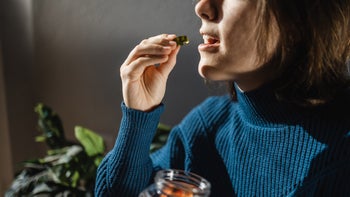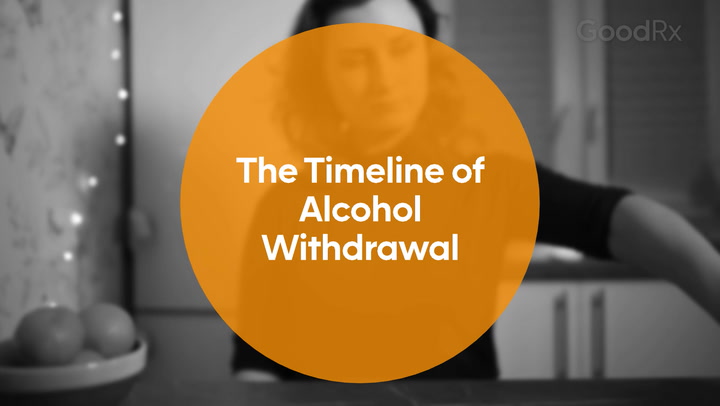
Poppers: What Are They, and Are They Dangerous?
Key takeaways:
Poppers are a type of inhalant that cause a brief high. They’re often used to enhance social or recreational activities, including sex.
Poppers can cause effects like euphoria, warmth, and dizziness. They also make the muscles relax in your vagina or anus, which can make sex easier and more pleasurable for some people.
Poppers are legal to buy and possess in the U.S., but they’re not safe to use. The FDA warns that using poppers can lead to serious health problems, hospitalization, and even death.
Access savings on related medications
Table of contents
Inhalants are chemicals that people breathe in for their physical and mind-altering effects. Nitrite “poppers” are a type of inhalant that people use to enhance social experiences and to make sex feel better. They’re legal to buy and possess — but that doesn’t mean they’re safe.
In fact, these products can be dangerous for your brain and body. They can even lead to hospitalization, coma, and death. Let’s take a closer look at what poppers are, how they work, and the risks that come with using them.
What are poppers?
Poppers are small containers with liquid chemicals (nitrites) inside. When the container is opened, a strong smell is released. Inhaling this smell causes an immediate “high” sensation. The effect lasts for a few minutes and then starts to fade.
Search and compare options
But even though the effects are short-lived, sniffing poppers can be dangerous and even fatal.
What is in poppers?
Poppers contain many different types of alkyl nitrites. These are similar to a prescription medication called amyl nitrite that’s used to treat chest pain (angina). Prescription amyl nitrite comes in small glass capsules that you crush between your fingers and inhale the vapors, which is where the name “poppers'' comes from.
But poppers aren’t regulated by the FDA. This means there’s no way to know for sure exactly what’s in them. Using poppers can expose you to other dangerous substances without your knowledge.
Poppers generally contain a type of nitrite, including:
Amyl nitrite
Isopropyl nitrite
Isobutyl nitrite
Butyl nitrite
But again, because they’re not regulated by the FDA, there’s no way to be sure what type of nitrite is inside the container. It’s also possible that a completely different type of chemical could be inside.
When should you call 911 in an emergency? Here are 11 emergency situations where you should get help right away.
How to recognize an inhalant use disorder: Learn about inhalant use disorder, and how to spot the signs of abuse.
Are whippets dangerous? Here’s what you need to know about the risks of misusing nitrous oxide (whippets).
What do poppers do?
The nitrites in poppers work by dilating (relaxing) your blood vessels and muscles. They also cause your blood pressure to drop and your heart rate to speed up. This causes effects like:
Dizziness
Lightheadedness
Warmth
Euphoria
People inhale the vapors to get a quick, fleeting feeling of excitement. Poppers are often associated with social gatherings, parties, or sexual activities — anything where people are looking for a “heightened” experience. They also relax muscles in the vagina and anus, which is why poppers are often used to prepare for sex.
Read more like this
Explore these related articles, suggested for readers like you.
How long does a poppers high last?
A poppers high begins with a few seconds of inhalation and lasts a few minutes. Because inhalants like poppers cause such a quick high, people may repeatedly inhale more to prolong the effects. Continuing to use poppers in this way is dangerous and can result in loss of consciousness and even death.
Where do people buy poppers?
Poppers are sold in convenience stores, adult novelty shops, smoke shops, and online. They come in small bottles that look like energy shots. Poppers are often marketed as other types of products, such as:
Air fresheners
Nail polish removers or other cosmetics
Leather cleaners
Deodorizers
Liquid incense
Tape or VCR head cleaner
Poppers are also sold under many different names, including:
Rush or Super Rush
Sub-Zero
Iron Horse
Jungle Juice
Locker Room
Liquid Gold
Even though poppers are available in stores and online, this doesn’t mean that they’re safe.
Are poppers legal?
Yes and no. Poppers can be legally bought or sold in the U.S. — as long as they’re sold under another name, such as an air freshener or deodorizer. It’s also not illegal for an individual to possess poppers.
But technically, poppers are illegal for human consumption. This means it’s not legal to sniff, ingest, or otherwise use poppers as a drug. So, even though a person can legally buy and possess poppers, the FDA strongly warns against using them because of the risk of “severe injury or death.”
What are the risks and side effects of poppers?
Here are some of the potential risks of using these products:
Dizziness
Confusion
Headache
Nausea
Weakness
Low blood pressure
Eye irritation or damage
Skin irritation or rash
Trouble breathing
eizure
Irregular heartbeat
Coma
Death
Using poppers is also linked to a health condition called methemoglobinemia (MetHb). MetHb is a blood disorder where too little oxygen is carried in the blood. If not properly treated, MetHb can be fatal.
It’s not clear what the long-term effects are of using poppers. Poppers may also put you at risk for sexually transmitted infections (STIs), as poppers have been linked to risky sexual behavior.
Dangerous medication interactions
Poppers can be especially dangerous when combined with other prescription medications that affect your heart or blood vessels. This includes many common medications used for:
Attention-deficit hyperactivity disorder (ADHD)
Combining poppers with these types of medications can lead to strokes, heart attacks, and death.
Who shouldn’t use poppers?
Poppers aren’t safe for anyone to use. They may be especially risky for people who:
Are anemic
Are pregnant
Have heart problems
Have had a head injury or brain hemorrhage
Have glaucoma
When to get help
You should get help anytime serious symptoms appear, especially the following:
Breathing trouble
Confusion
Passing out
Call 911, or go to the nearest emergency room. These signs could indicate a life-threatening problem.
Other ways to improve your sex life without using poppers
Poppers are known for their ability to enhance sexual experiences, but these products can be dangerous. Using poppers can also cause you to lose your erection.
Finding other ways to improve your sex life can be helpful — especially understanding how to make anal sex as safe and pleasurable as possible. This might include:
Choosing a condom that’s comfortable and fits well
Using the right kind of lube (and plenty of it!)
Avoiding alcohol (since alcohol can also cause erection problems and delayed orgasm)
Communicating clearly with your partner, both before and during sex
And remember: With sex, it’s especially important to pay attention to what feels good and what doesn’t. This can help to prevent tears, fissures, and other injuries. Using poppers can make it hard to be “in touch” with how your body is feeling during sex.
Frequently asked questions
Yes and no. Acetone and poppers are both inhalants (chemicals that people breathe in to get high). Both are dangerous to use and can have serious side effects.
The difference? They’re different chemicals. Poppers contain nitrites, while acetone is a ketone. Acetone has a strong smell and is found in many household products, like nail polish and cleaning supplies.
It’s hard to say, as this topic hasn’t been studied much yet. In one small study in mice, alkyl nitrites were linked to nerve damage — especially in areas that deal with memory and learning. But overall, experts aren’t sure exactly how alkyl nitrites affect the brain.
The bottom line
Poppers are appealing to many because of their brief “high” and sexual enhancement effects. But the FDA strongly warns against consuming these products. That’s because the risks of taking poppers are real — including problems getting enough oxygen to your body, coma, and even death.
Instead, consider other ways to make sex and social events safe, fun, and enjoyable. And if you’re having a difficult time stopping the use of poppers, reach out to a therapist or treatment center for help.
Why trust our experts?



If you or someone you know struggles with substance use, help is available. Call SAMHSA’s National Helpline at 1-800-662-HELP (4357) to learn about resources in your area.
References
Advisory Council on the Misuse of Drugs. (n.d.). Alkyl nitrites (“poppers”) – updated harms assessment and consideration of exemption from the Psychoactive Substances Act (2016).
Alcohol and Drug Foundation. (2025). Alkyl nitrites (amyl).
Baydala, L. (2010). Inhalant abuse. Paediatrics & Child Health.
Brazil, R. (2021). What are poppers and are they legal? Chemistry World.
California Department of Public Health. (2024). Health alert: ‘Poppers’ psychoactive inhalant drugs.
Cha, H. J., et al. (2016). Neurotoxicity induced by alkyl nitrites: Impairment in learning/memory and motor coordination. Neuroscience Letters.
Chiang, C., et al. (2024). Poppers dermatitis: A systematic review on a unique form of contact dermatitis in the MSM community. Dermatitis.
Drug Enforcement Administration. (2020). Inhalants. U.S. Department of Justice.
Dutta, A., et al. (2017). Long-term nitrite inhalant exposure and cancer risk in MSM. AIDS.
Feltman, R. (2017). ‘Poppers’ might permanently damage your eyes. Popular Science.
Frank. (n.d.). Amyl nitrate.
Ignite Healthwise. (2024). High-risk sexual behavior. MyHealth.Alberta.ca.
Johnson-Arbor, K. (n.d.). Dangers of poppers. Poison Control.
Land, E. (2015). When poppers are not poppers. San Francisco Aids Foundation.
Myung, L., et al. (2024). Sex, drugs & innovation law: Regulating the legality of “poppers.” California Law Review.
Olinde, A., et al. (2025). A survey study of urban retailers selling alkyl nitrites ("poppers") in the New York City area which led to public health interventions. Clinical Toxicology.
O’Malley, G. F., et al. (2022). Volatile nitrites. Merck Manual Professional Version.
Tello, D. M., et al. (2021). Poppers-induced methemoglobinemia: A curious case of the blues. Cureus.
Therapeutic Goods Administration. (2019). Testing of alkyl nitrite 'poppers': TGA laboratory testing. Australian Government Department of Health, Disability and Ageing.
U.S. Food and Drug Administration. (2021). FDA advises consumers not to purchase or use nitrite “poppers”.
U.S. Food and Drug Administration. (2021). Ingesting or inhaling nitrite "poppers" can cause severe injury or death.
Zhang, H., et al. (2016). Poppers use and risky sexual behaviors among men who have sex with men in Beijing, China. Drug and Alcohol Dependence.





























